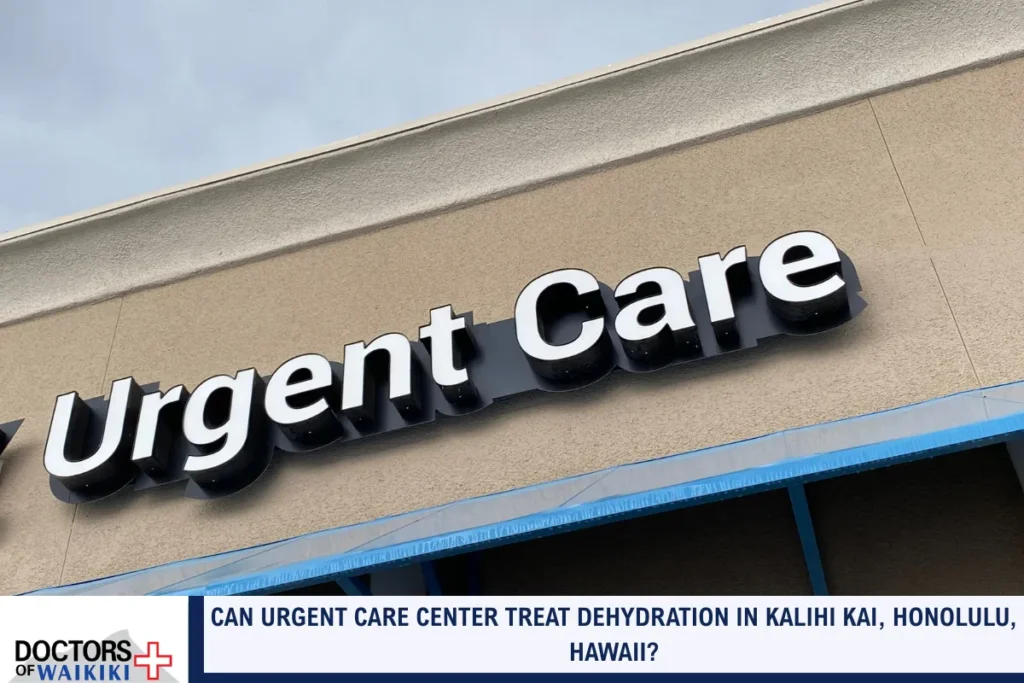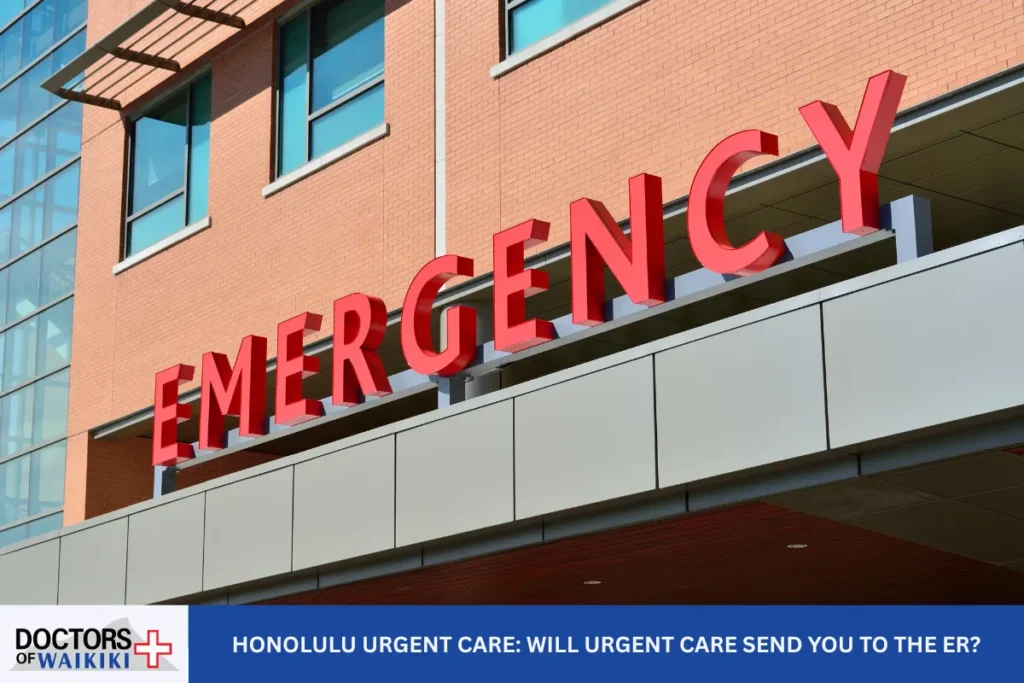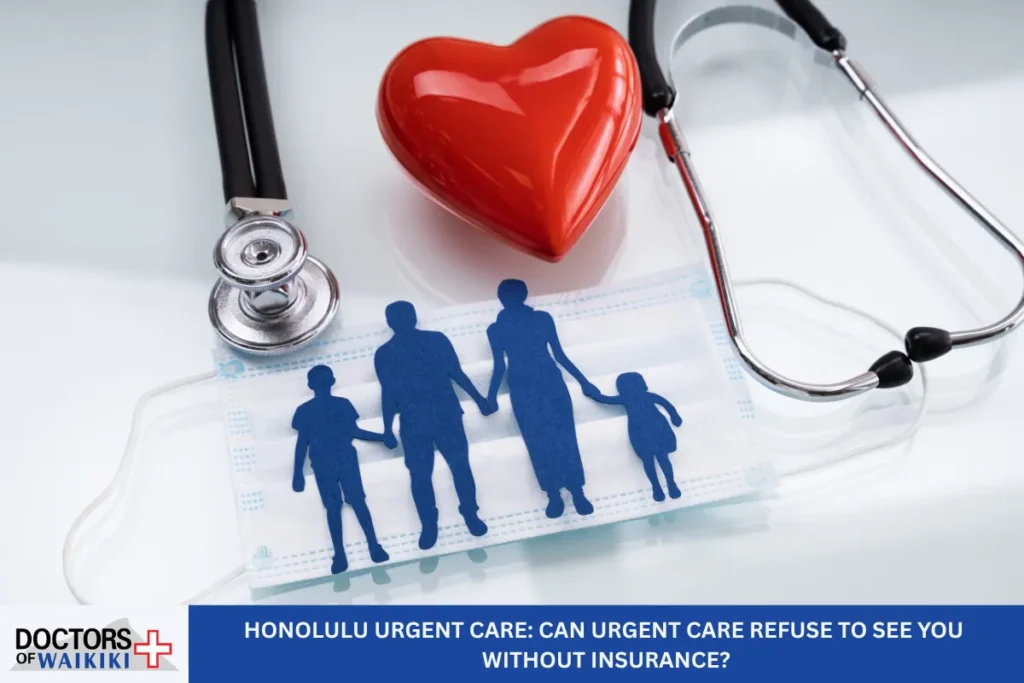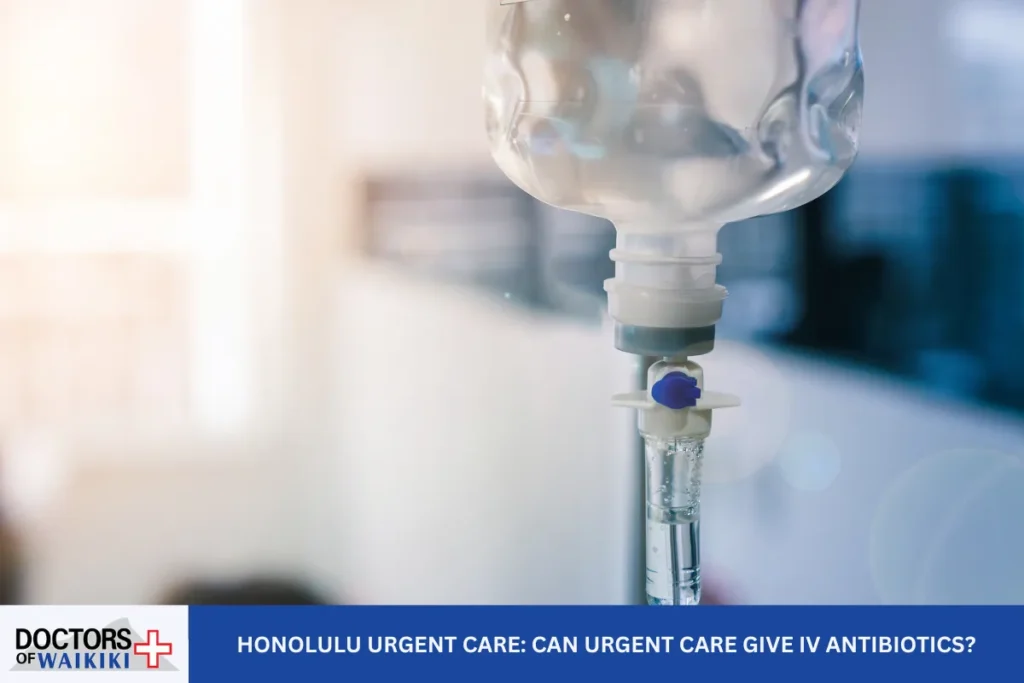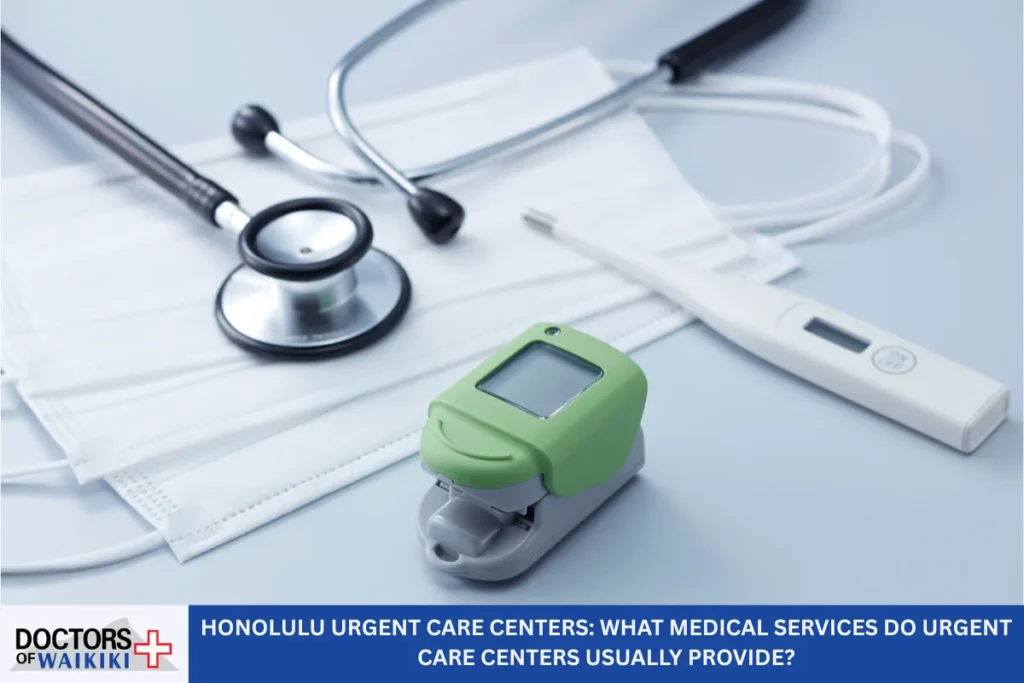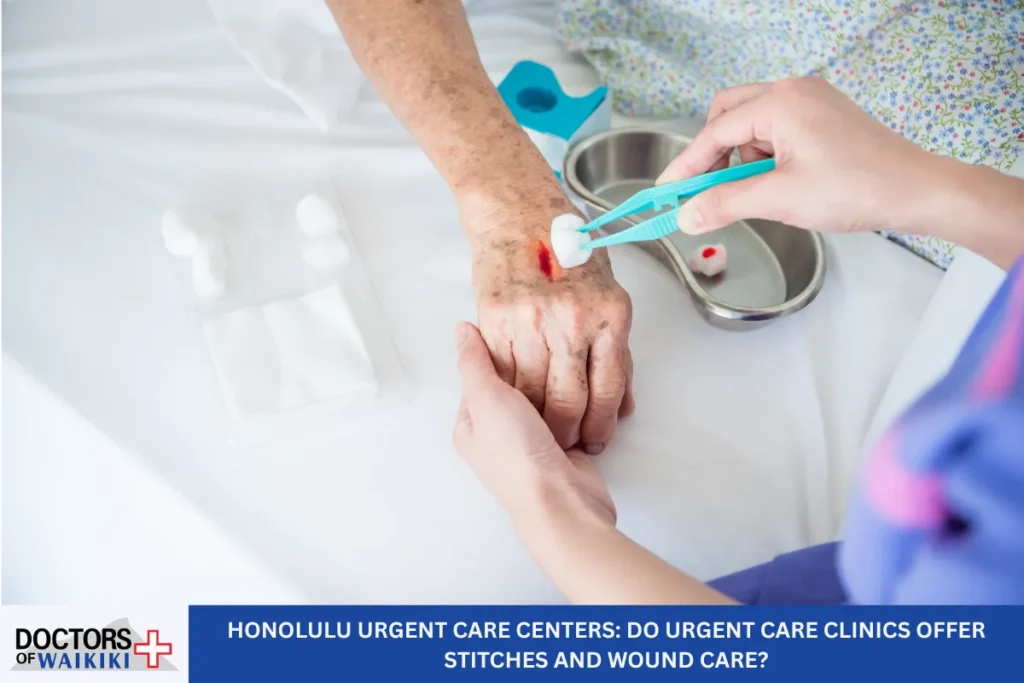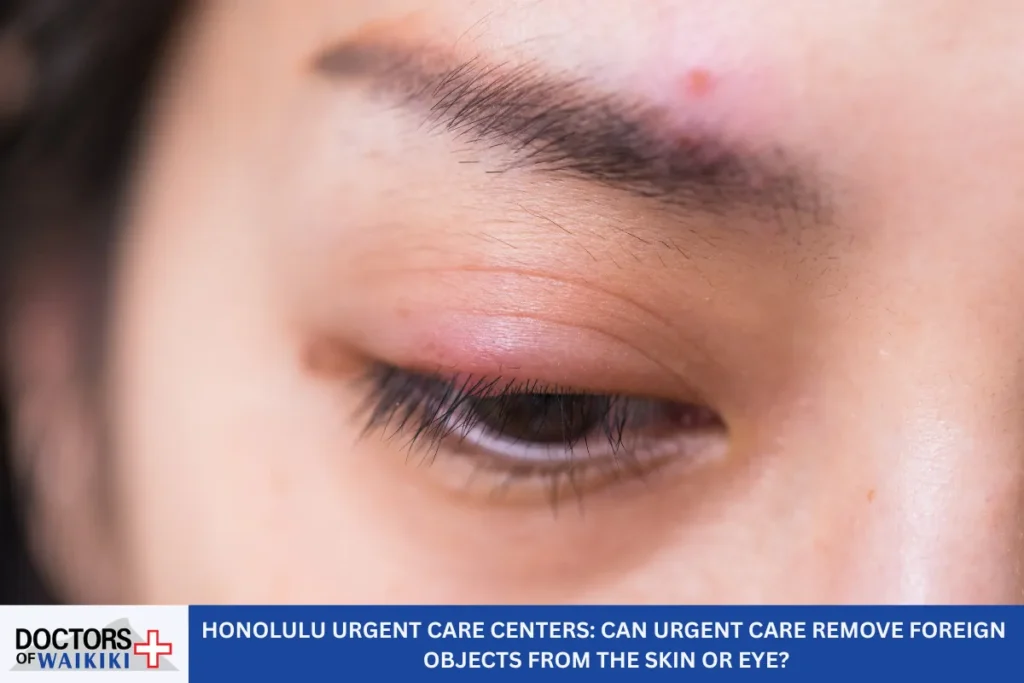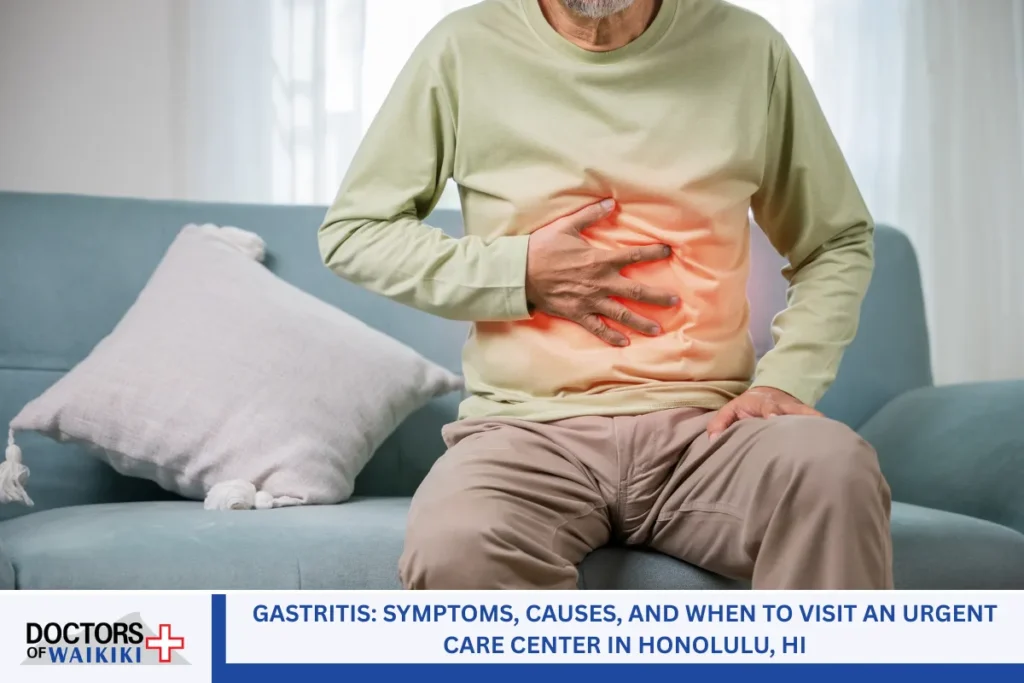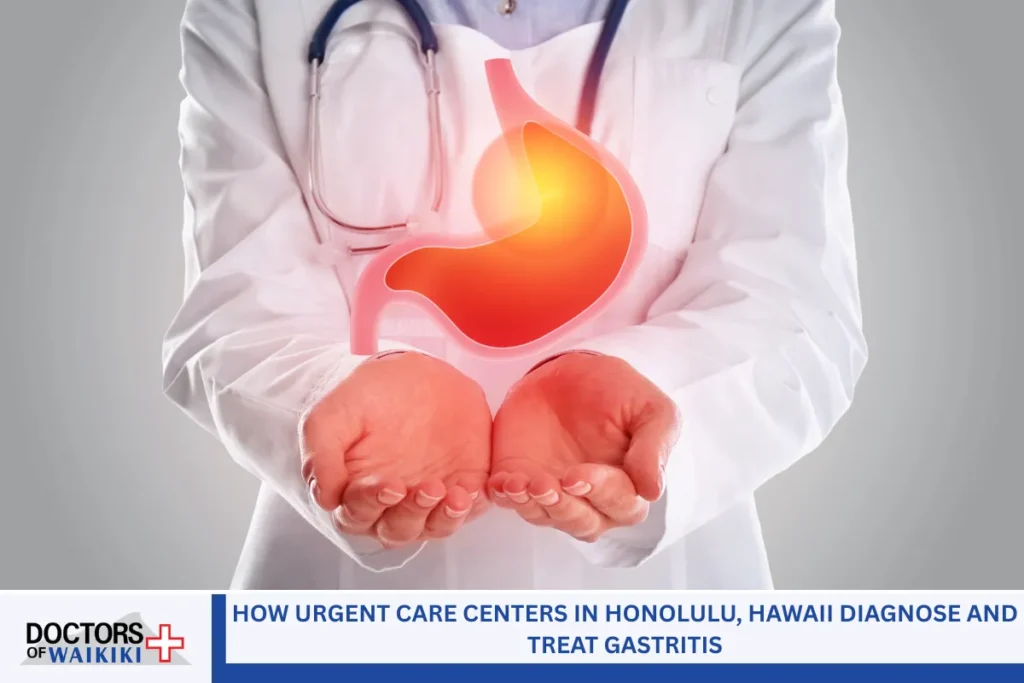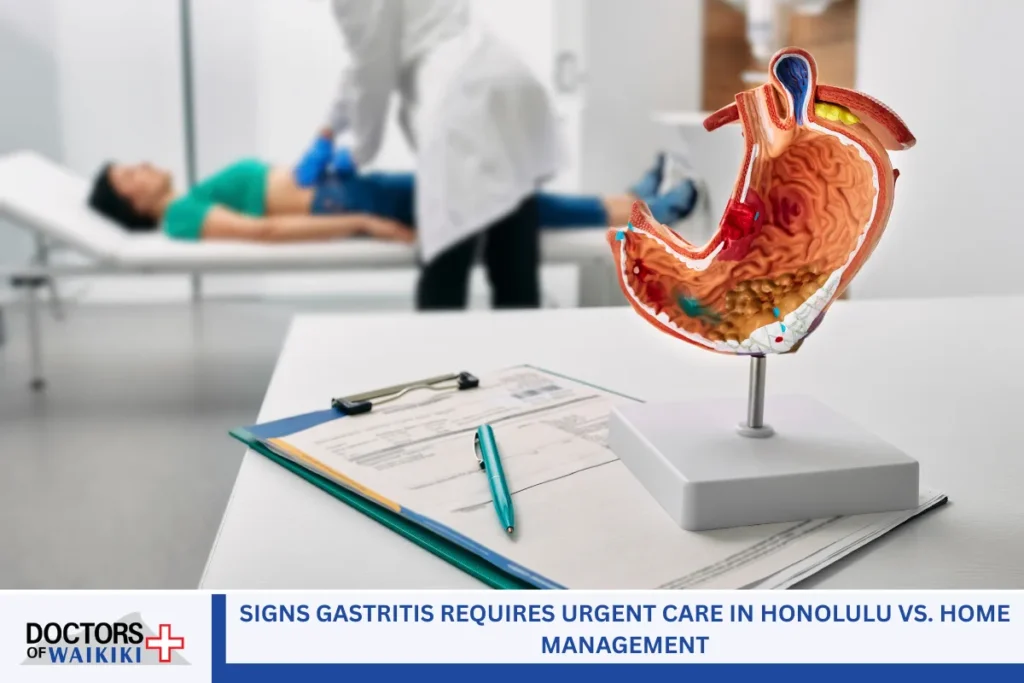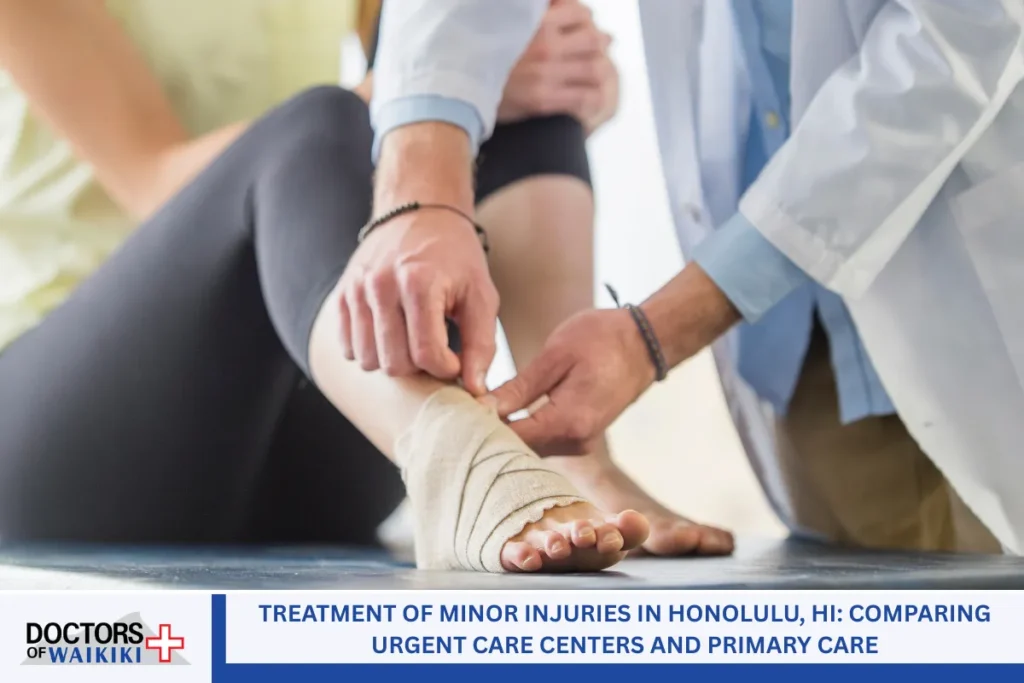An urgent care center provides essential support for treating dehydration cases in Kalihi Kai, Honolulu, Hawaii, offering immediate medical assistance without the long wait times typically associated with a hospital. Dehydration may seem like a mild issue, but in many cases, it can develop into a serious health problem if left unaddressed. Recognizing the signs early and seeking care from a medical professional can make all the difference in how quickly a person recovers.
Dehydration can affect people of all ages, from young children to elderly adults. In a tropical environment like Kalihi Kai, where temperatures stay high throughout the year and humidity levels can be intense, it’s easy to lose more fluids than the body can replace. Understanding how dehydration develops, recognizing the symptoms to look out for, and knowing how an urgent care center can effectively treat it helps empower individuals and families to take prompt action when needed.
What Is Dehydration?
Dehydration occurs when the body loses more water than it takes in, resulting in an imbalance of bodily functions. Water is crucial for the body’s systems to operate smoothly—it’s involved in digestion, temperature regulation, circulation, and more. Without sufficient water, organs, muscles, and tissues cannot function properly, which can lead to fatigue, confusion, and even medical emergencies.
Water loss happens through sweat, urine, bowel movements, and breathing. When this loss isn’t replenished, dehydration sets in. The condition can be mild at first, but without intervention, it can progress quickly and affect a person’s physical and mental well-being. In areas like Kalihi Kai, where outdoor activities and sun exposure are common, the risk of dehydration is significantly higher.
Causes of Dehydration in Kalihi Kai

Several environmental and health-related factors contribute to dehydration in the Kalihi Kai community. Understanding these triggers helps individuals take proactive steps in maintaining proper hydration.
Hot and Humid Climate
The tropical climate of Honolulu means residents and visitors experience year-round warmth. High temperatures, combined with physical activity outdoors, lead to increased sweating. If fluids are not replenished quickly enough, the risk of dehydration increases significantly.
Physical Activity
Sports, walking, hiking, and even long commutes in the heat can cause the body to lose large amounts of water. People who engage in high-energy activities may not always remember to hydrate regularly, especially young children and teens.
Illness
Common illnesses, such as fever, vomiting, diarrhea, or infections, can lead to increased fluid loss. Gastrointestinal infections, in particular, can lead to rapid fluid depletion, necessitating prompt medical attention.
Chronic Conditions and Medications
People with medical conditions such as diabetes or those taking medications like diuretics may be more prone to dehydration. These medications and conditions either increase fluid output or interfere with the body’s ability to retain water.
Insufficient Water Intake
Dehydration can occur when individuals do not drink enough fluids throughout the day. Children, seniors, and busy adults might forget or avoid water, leading to mild or moderate dehydration without realizing it.
Signs and Symptoms of Dehydration
Recognizing the symptoms of dehydration early can prevent more serious health issues. While symptoms can vary depending on the person’s age and the severity of fluid loss, some common signs include:
- Dry mouth and cracked lips
- Dizziness or light-headedness
- Fatigue or extreme tiredness
- Dark yellow urine or decreased urine output
- Headaches or blurred vision
- Rapid heartbeat or breathing
- Lack of sweat despite heat
- Muscle cramps
- Sunken eyes
- Difficulty focusing or irritability
- Cold or clammy skin
- Fainting or confusion in severe cases
In children, signs may also include dry diapers for several hours, lack of tears when crying, and lethargy.
Who Is Most at Risk for Dehydration?

Dehydration can affect anyone, but some groups are more vulnerable than others, especially in warm environments like Kalihi Kai.
Infants and Young Children
Young children are more susceptible to dehydration due to their smaller body size and higher rates of fluid turnover. They may also have difficulty communicating their thirst, and their condition can worsen quickly.
Seniors
Older adults often have a reduced sense of thirst. Many are also on medications that contribute to water loss. Mobility issues can make it more difficult to access fluids regularly, increasing the risk of moderate to severe dehydration.
Athletes and Outdoor Workers
People who spend a lot of time outside—whether jogging, surfing, or working—are at increased risk due to prolonged exposure to the sun and heat. Sweating can lead to significant fluid and electrolyte loss.
Individuals With Chronic Health Conditions
People managing chronic illnesses, such as kidney disease, diabetes, or heart conditions, may struggle with maintaining proper fluid levels. Their bodies might process fluids differently or have greater losses due to medications.
How an Urgent Care Center in Kalihi Kai Treats Dehydration

Visiting an urgent care center is one of the most effective ways to treat mild to moderate dehydration quickly and effectively. These centers are designed to offer immediate attention, especially for non-life-threatening conditions that still require medical expertise.
Medical Assessment
At the urgent care center, a licensed provider will begin by asking questions about recent symptoms, water intake, medical history, and potential causes of fluid loss. They may also conduct a physical exam to assess severity.
Diagnostic Testing
Simple tests may be performed, such as checking your pulse, blood pressure, and skin elasticity. In more serious cases, laboratory tests, such as blood work or a urinalysis, may be conducted to assess electrolyte balance and hydration status.
Rehydration Treatment
Depending on the severity, dehydration is treated in the following ways:
- Oral rehydration using electrolyte solutions or water.
- Intravenous (IV) fluids for moderate to severe cases where oral fluids can’t be kept down.
- Anti-nausea or anti-diarrheal medications may be used if gastrointestinal issues are causing fluid loss.
The medical team will also monitor the patient’s recovery progress before discharging them or recommending further care if necessary.
Home Remedies vs. Professional Care

Mild dehydration can often be addressed at home with water, oral rehydration salts, or sports drinks containing electrolytes. However, relying solely on home remedies might not be enough in more advanced cases. Persistent symptoms, especially when accompanied by vomiting, dizziness, or fainting, call for immediate medical attention at an urgent care center.
It’s important not to ignore signs just because they seem minor at first. Seeking treatment early at a medical facility ensures quicker recovery. It prevents complications such as heat exhaustion, urinary tract infections, or kidney issues.
Preventing Dehydration in Everyday Life
Hydration is crucial for maintaining good health, particularly in warm climates.
Adopting a few simple habits can make a big difference:
- Drink water regularly throughout the day, even if you don’t feel thirsty.
- Carry a refillable water bottle and keep it within reach.
- Eat water-rich foods like watermelon, cucumbers, and oranges.
- Avoid caffeinated and sugary drinks, as they may worsen dehydration.
- Take breaks in the shade or indoors when spending time outdoors.
- Dress in lightweight, breathable clothing to reduce sweat loss.
Families should also make it a routine to check for dehydration symptoms, especially in kids and seniors. Educating household members about the importance of staying hydrated helps create a supportive and health-focused environment.
Dehydration Recovery: What Happens After a Visit to Urgent Care?
After receiving care at an urgent care center, the recovery process usually includes rest, hydration, and avoiding strenuous activity for a short period. The body needs time to regain its balance, especially after fluid and electrolyte depletion.
Patients are often advised to:
- Continue sipping fluids throughout the day
- Eat light, hydrating meals
- Avoid caffeine and alcohol
- Follow any medication instructions provided
- Return for a follow-up if symptoms return
If an illness triggers dehydration, treating the underlying cause is essential to prevent recurrence.
The Importance of Timely Medical Intervention

Prompt care prevents a manageable condition, such as dehydration, from progressing into something more severe. An urgent care center bridges the gap between home care and hospital emergency services. It’s a valuable resource for the Kalihi Kai community, offering both children and adults a safe, fast, and affordable solution when health concerns arise.
Medical attention at the right moment not only improves recovery but also reduces the risk of complications like seizures, kidney failure, or heat stroke. It’s always better to seek help early rather than wait for symptoms to worsen.
Stay Safe and Hydrated in Kalihi Kai
Dehydration is more than just being a little thirsty—it’s a health condition that can become serious in a short amount of time. With Kalihi Kai’s tropical environment, active community lifestyle, and year-round heat, residents are particularly susceptible to rapid fluid loss. Fortunately, help is readily available through local urgent care centers, which are equipped to manage and treat dehydration efficiently.
Recognizing the early signs, understanding the causes, and knowing when to seek professional help allows families and individuals to stay safe, active, and healthy. A trip to an urgent care center might be all that’s needed to restore your energy, stabilize your health, and get you back on your feet.
Kalihi Kai Urgent Care Center – Doctors of Waikiki

Doctors of Waikiki is a modern walk-in urgent care clinic located in Honolulu, serving the Kalihi Kai area with quick and dependable medical services. Our clinic is open 7 days a week and specializes in treating common health concerns like dehydration, minor injuries, illnesses, and more. Whether you’re dealing with flu symptoms or need immediate rehydration therapy, our medical team is ready to help—without the long wait.
We also provide immigration medical exams, green card medical checkups, health screenings, and minor surgical procedures. Many of our staff members speak multiple languages, making our clinic a welcoming and inclusive space for patients from diverse backgrounds. For fast, friendly, and professional care, call us today at (808) 922-2112.
Frequently Asked Questions (FAQ)
How do urgent care centers handle severe dehydration?
Urgent care centers are well-equipped to treat severe dehydration, especially when symptoms are caught early. If a patient exhibits warning signs, such as dark-colored urine, a fast heart rate, low hydration levels, or confusion, medical professionals at urgent care facilities begin by evaluating the severity.
- Vital signs are monitored.
- Lab services may be used to check electrolyte balance or rule out complications.
- For immediate rehydration, intravenous fluids (IV fluids) are administered.
- Patients may also receive oral rehydration solutions if they are able to drink fluids without vomiting.
These steps help restore fluid intake quickly and reduce complications like heat cramps, low blood pressure, or even kidney stress. In Kalihi Kai, urgent care centers play a vital role in managing dehydration caused by hot weather, illness, or overexertion without needing an ER visit. Always seek professional help when signs worsen or don’t improve with fluids at home.
What are the early signs of dehydration that people should look out for?
Recognizing the signs of dehydration early helps prevent it from becoming severe. Dehydration doesn’t always start with thirst—there are many subtle cues your body gives you. Here’s what to look for:
- Dark-colored urine or reduced urination
- Dry mouth and lips
- Headache or a dehydration headache
- Muscle cramps or heat cramps
- Dizziness or lightheadedness
- Dry, cool skin
- Fatigue or weakness
- Increased heart rate
If you live in hot weather regions, such as Kalihi Kai, or spend time outdoors, staying aware of these signs is even more important. Children and older adults may not express thirst, making them more prone to chronic dehydration. Maintaining balanced hydration levels through regular fluid intake, such as coconut water or oral rehydration solutions, helps prevent complications.
Always respond promptly to these signs and consider visiting an urgent care facility if symptoms persist for more than a few hours or worsen over time.
Is coconut water a good remedy for dehydration?
Yes, coconut water is a natural and effective option for rehydrating the body during mild to moderate dehydration. It contains natural electrolytes, such as potassium, sodium, and magnesium, which help restore the body’s fluid balance without the added sugars found in many commercial sports drinks.
Benefits of coconut water include:
- Light, refreshing taste
- Low calorie and fat content
- Natural electrolyte balance support
- Gentle on the stomach
While coconut water is helpful, it’s not a substitute for medical treatment during severe dehydration. In such cases, IV fluids administered at urgent care centers or hospitals are necessary to stabilize hydration levels and correct electrolyte imbalances.
As a preventive option, especially in hot weather, it’s smart to include coconut water in your daily fluid intake, along with plain water. For more serious symptoms, such as a rapid heart rate, nausea, or confusion, always seek medical attention.
Can chronic dehydration affect long-term health?
Absolutely. Chronic dehydration occurs when the body consistently lacks sufficient water over an extended period of time. This condition can strain multiple bodily systems and lead to long-term health complications if left untreated.
Over time, insufficient fluid intake can contribute to:
- Kidney stones or infections
- Frequent dehydration headaches
- Persistent fatigue and poor concentration
- Weakened immune response
- Electrolyte imbalances
- Low blood volume and higher heart rate
In tropical climates like Kalihi Kai, many individuals experience recurring hydration level issues without realizing it. This is especially true for older adults and those who rely heavily on caffeine or alcohol, both of which can cause fluid loss.
If you often experience heat cramps, dry skin, or dizziness, you might be dealing with ongoing fluid loss. Visiting urgent care facilities for a hydration check-up or receiving oral rehydration solutions may help. Preventing chronic dehydration begins with drinking consistently throughout the day, even before you feel thirsty.
When should someone go to urgent care for dehydration instead of treating it at home?
Dehydration can often be managed at home with rest, adequate fluid intake, and the use of oral rehydration solutions. However, there are times when professional care at an urgent care center becomes necessary—especially in Kalihi Kai, where hot weather increases the risk.
You should visit urgent care facilities if:
- Dark-colored urine persists for hours
- There is a rapid heart rate or low blood pressure
- Vomiting or diarrhea lasts longer than 24 hours
- Symptoms like confusion, fainting, or dehydration headache occur
- You can’t keep fluids down
At urgent care, medical professionals can assess your hydration levels, perform quick lab services, and start IV fluids to restore balance. Waiting too long may cause serious issues like electrolyte imbalance, kidney complications, or even hospitalization.
Acting early not only speeds up recovery but prevents severe dehydration from affecting long-term health. It’s always better to be safe and let experts evaluate the situation if you’re unsure.
Read more: Common Conditions Treated by Pain Management Experts in Honolulu, Hawaii

